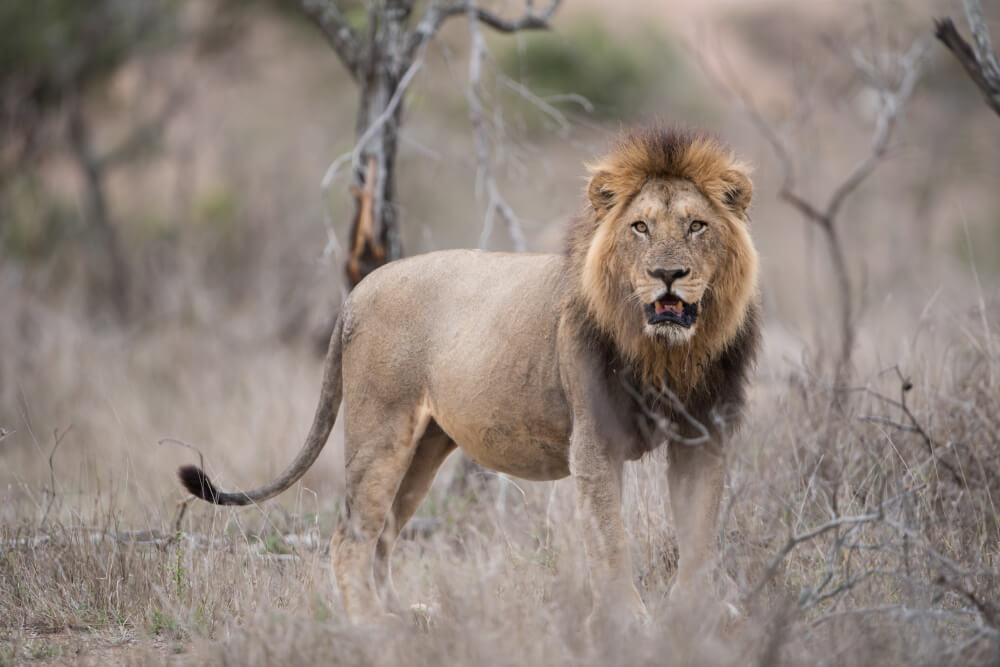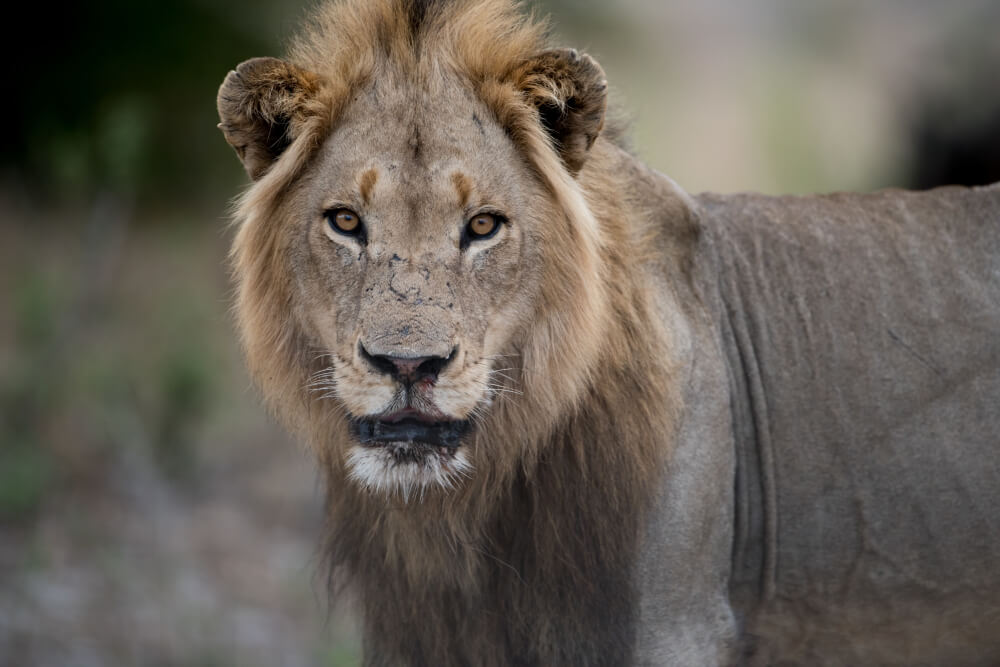King of the African Plains
The lion is Africa’s largest carnivore. Weighing in at a hefty 190kg’s, the male lion is larger than the female African lion and also sports a beautiful mane of long hair on the head and face that extends down to the shoulders.
The African lion is a sandy to tawny colored mammal with a white stomach and chest. The mane of the African lion is most often the same sandy color. However, in some rare cases the majestic African lion has a black, reddish or creamy mane.
The lions of Africa have a wide habitat. They roam over large areas and only avoid places like deserts and rain forests which makes South Africa’s numerous game parks the perfect habitat for these majestic animals to roam freely.
Lions in general are the only sociable big cats. Females and cubs are always found together for long periods whilst the male lions only stop by periodically. In an average pride, you can expect to find 2 or 3 females and a number of cubs. Males form their own prides and breed whenever possible. Lions seem like lazy animals because they spend 20 hours a day resting and are only active during the cooler period of the day.
The African lion is quite fast, being able to sprint up to 60km/hr but only for short distances.











